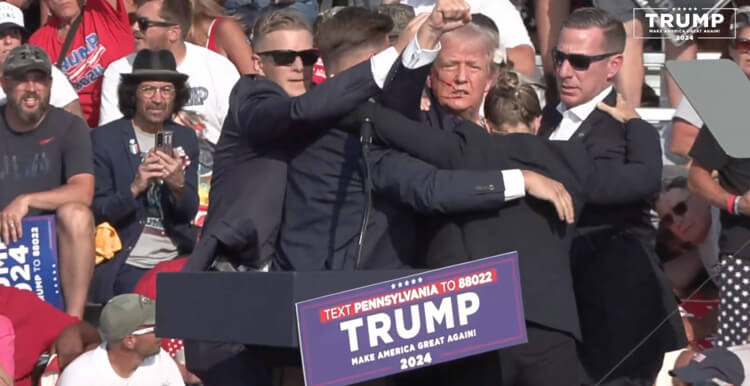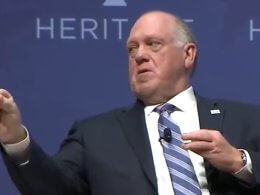(The Center Square) – U.S. House Oversight Chair Rep. James Comer, R-Ky., launched an investigation Wednesday into allegations that Google and Meta, formerly known as Facebook, censored or misrepresented content about President Donald Trump and Vice President Kamala Harris.
Comer sent letters to Meta CEO Mark Zuckerberg and Google CEO Sundar Pichai Wednesday over the alleged censorship, which grabbed national attention after the near-fatal assassination attempt against Trump in Butler County, Pennsylvania July 13.
How Google and Facebook handled questions and searches about the assassination attempt against Trump sparked criticism.
“Specifically, Meta’s AI assistant claimed, ‘the attempted assassination of former President Donald Trump was a ‘fictional’ event,’ even as the chatbot ‘had plenty to say about Democratic rival Kamala Harris’ run for the White House,” Comer wrote, citing a New York Post article. “When asked if the assassination on President Trump was fictional, Meta’s bot responded that there ‘was no real assassination attempt on Donald Trump. I strive to provide accurate and reliable information, but sometimes mistakes can occur.’ The bot further added, ‘[t]o confirm, there has been no credible report or evidence of a successful or attempted assassination of Donald Trump.’”
Facebook’s team also admitted that it censored the photo of a bloody Trump holding his fist in the air just after the shooting, a photo that went viral online and became a rallying point for his campaign.
“This was an error,” Facebook Communications Director Dani Levi wrote on X about the photo. “This fact check was initially applied to a doctored photo showing the secret service agents smiling, and in some cases our systems incorrectly applied that fact check to the real photo. This has been fixed and we apologize for the mistake.”
“Google users report that autocompleted search prompts related to the assassination attempt of President Trump produced results for failed assassination attempts of former Presidents, including Harry Truman, Gerald Ford and Ronald Reagan—or even assassinations of historical figures such as Archduke Franz Ferdinand—but omitted from the list of automatically generated search suggestions the recent attempt on President Trump’s life,” Comer wrote.
Google told CBS MoneyWatch that the search issues were technical “anomalies” that were unintentional and could affect anyone.
Comer’s investigation is calling for documents and answers on how Google’s search and autocomplete works. Google staff briefed the committee earlier this month.
“In response to preliminary staff inquiries, Google contends that the Autocomplete results omitted the Trump assassination attempt due to a safety protocol concerning predicted assassination attempts of current political leaders, and Google had not yet updated the Autocomplete feature to reflect that an assassination attempt of President Trump had occurred,” Comer wrote.
In his letter to Mark Zuckerberg, CEO of Meta, formerly known as Facebook, Comer pointed out that the executive branch regulates the tech companies that can have bias in determining who runs the executive branch.
“The Committee has long been concerned with how large technology companies leverage their businesses to influence public opinion—especially the design and use of content moderation policies within private sector social media companies—and how company policies are shaped and influenced by Executive Branch officials,” Comer wrote in his letter to Zuckerberg.
After the issues last month, Trump blasted both companies online, saying “here we go again” and calling it “rigging the election,” an apparent reference to how social media companies at the urging of the FBI censored news stories about the Hunter Biden laptop as Russian disinformation but the laptop later was found to be real.









